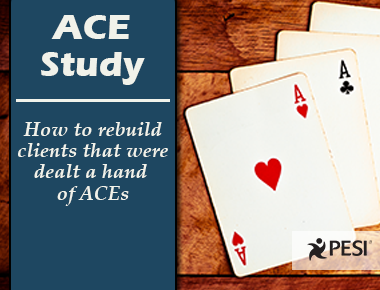The Adverse Childhood Experiences Study and Why it Matters
Martha Teater, MA, LMFT, LCAS, LPC

In most card games aces are valued and prized. In life, getting dealt a hand of ACEs is surely not the thrill that it is in a card game.
The Adverse Childhood Experiences (ACE) Study highlights the long-term negative impact of traumatic events in childhood. The results are staggering. Childhood trauma has potentially devastating consequences in many realms: physical, behavioral, emotional, social, and financial.
Physical fallout includes increased smoking, addictions, chronic diseases, obesity, STD鈥檚, and fetal death. With a score of 6 or more life expectancy is shortened by 20 years.
The behavioral impact includes a much higher suicide risk, and increased likelihood of being a perpetrator or victim of violence, risky sexual behavior, and more marriages.
Emotionally, higher ACE scores correlate with a dramatically elevated risk of depression, anxiety, PTSD, conduct disorder, and learning problems.
The social consequences are stunning. With a score of 4 or more we see lower academic achievement, poor social skills, more delinquent and criminal behavior, and even food insecurity in the family.
In looking at the financial ramifications of high ACE scores we see expenses related to criminal justice, healthcare, and behavioral health costs, and family financial stress.
In fact, the lifetime cost of nonfatal child abuse and neglect in 2008 was over $210,000 per victim, and the total lifetime economic burden in the U.S. was a whopping $124 billion.
Not all the news is bad.
There has been a recent surge of interest in the ACE Study and communities are developing creative ways to intervene and prevent intergenerational transmission of the issues caused by high ACE scores.
To find out how you can help build stronger, healthier communities, please 听that will arm you with tools to help individuals and families with high ACE scores. We鈥檒l talk about prevention, intervention, and how you can use this information in your work with people in community.
-Martha Teater, MA, LMFT, LCAS, LPC
This blog was contributed by 黑料网 speaker Martha Teater, MA, LMFT, LCAS, LPC. 听Martha has been in private practice in NC since 1990. She is a speaker in the US and internationally on compassion fatigue, evidence-based treatment of trauma, DSM-5, and behavioral treatment of chronic pain. You can learn more about Martha at and
The Adverse Childhood Experiences (ACE) Study highlights the long-term negative impact of traumatic events in childhood. The results are staggering. Childhood trauma has potentially devastating consequences in many realms: physical, behavioral, emotional, social, and financial.
Physical fallout includes increased smoking, addictions, chronic diseases, obesity, STD鈥檚, and fetal death. With a score of 6 or more life expectancy is shortened by 20 years.
The behavioral impact includes a much higher suicide risk, and increased likelihood of being a perpetrator or victim of violence, risky sexual behavior, and more marriages.
Emotionally, higher ACE scores correlate with a dramatically elevated risk of depression, anxiety, PTSD, conduct disorder, and learning problems.
The social consequences are stunning. With a score of 4 or more we see lower academic achievement, poor social skills, more delinquent and criminal behavior, and even food insecurity in the family.
In looking at the financial ramifications of high ACE scores we see expenses related to criminal justice, healthcare, and behavioral health costs, and family financial stress.
In fact, the lifetime cost of nonfatal child abuse and neglect in 2008 was over $210,000 per victim, and the total lifetime economic burden in the U.S. was a whopping $124 billion.
Not all the news is bad.
There has been a recent surge of interest in the ACE Study and communities are developing creative ways to intervene and prevent intergenerational transmission of the issues caused by high ACE scores.
To find out how you can help build stronger, healthier communities, please 听that will arm you with tools to help individuals and families with high ACE scores. We鈥檒l talk about prevention, intervention, and how you can use this information in your work with people in community.
-Martha Teater, MA, LMFT, LCAS, LPC
This blog was contributed by 黑料网 speaker Martha Teater, MA, LMFT, LCAS, LPC. 听Martha has been in private practice in NC since 1990. She is a speaker in the US and internationally on compassion fatigue, evidence-based treatment of trauma, DSM-5, and behavioral treatment of chronic pain. You can learn more about Martha at and
Topic: Clinical Psychology and Psychiatry
Tags: ACE Score Questionnaire | Adverse Childhood Experiences (ACE) Study


